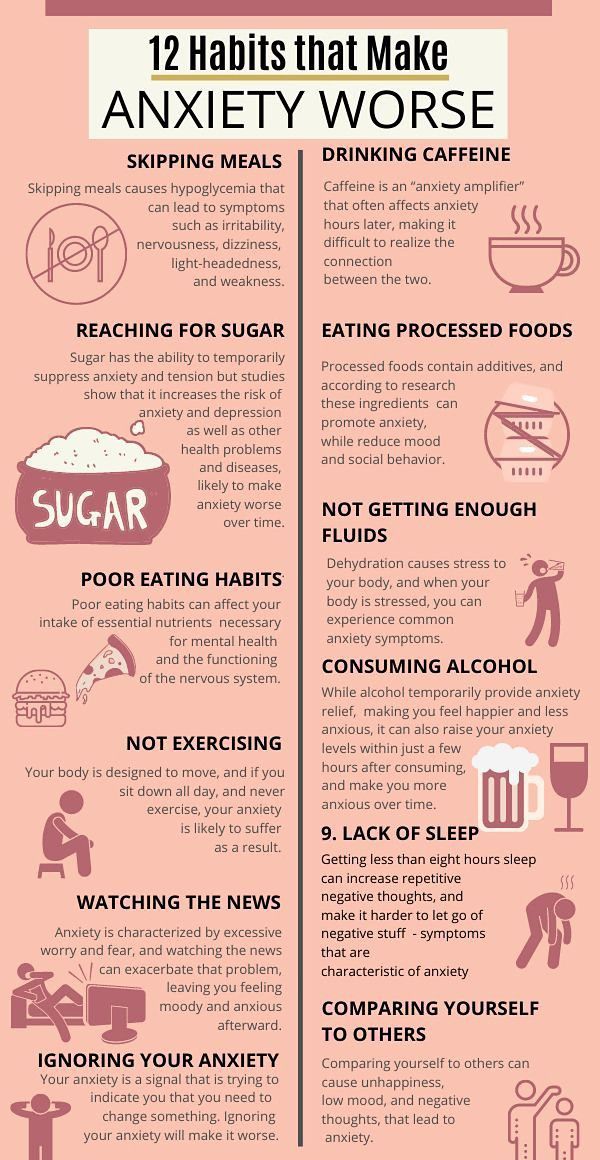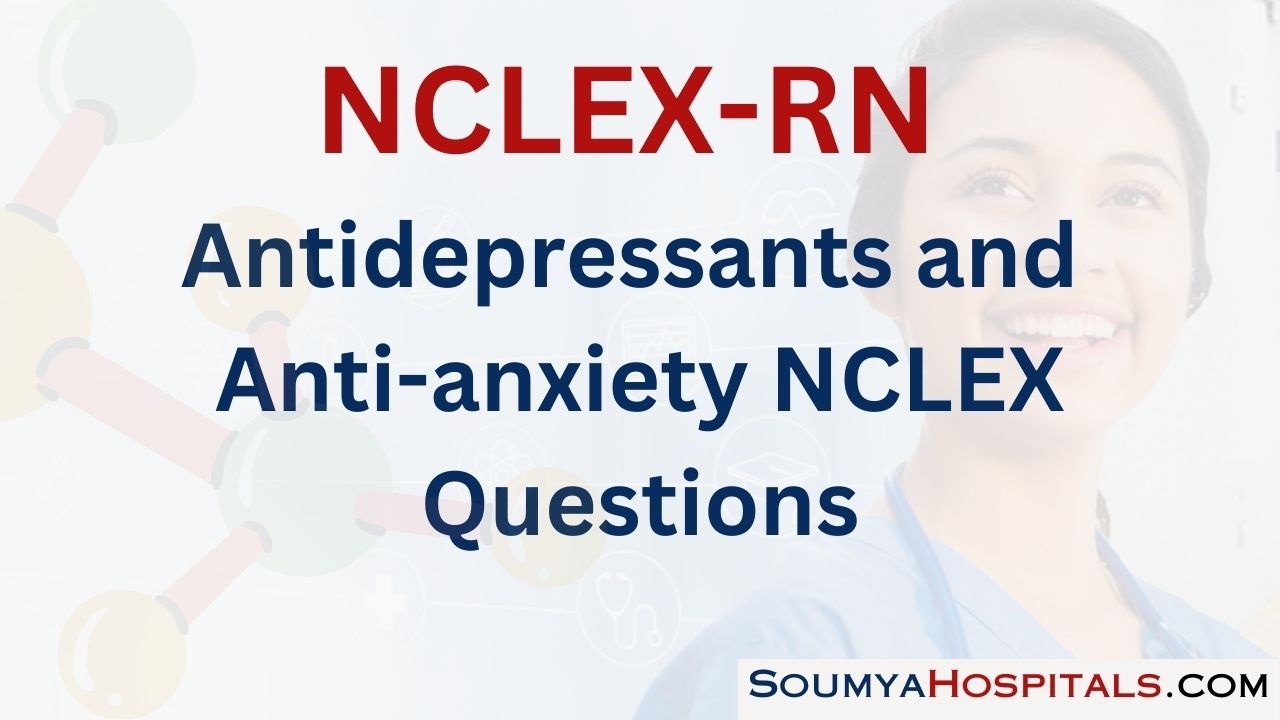The ultimate goal of practicing Free NCLEX Questions is to gain the knowledge and confidence necessary to pass the licensure exam and embark on a successful nursing career.
NCLEX Antidepressants and Anti-anxiety Questions
Antidepressants and Anti-anxiety NCLEX Practice Questions
Question 1.
What is the primary mechanism of action of tricyclic antidepressants?
(a) Inhibition of the reuptake of norepinephrine and serotonin
(b) Stimulation of the release of norepinephrine and serotonin
(c) Blockage of acetylcholine receptors
(d) Inhibition of the synthesis of norepinephrine and serotonin
Answer:
(a) Inhibition of the reuptake of norepinephrine and serotonin
Explanation:
Tricyclic antidepressants work by inhibiting the reuptake of norepinephrine and serotonin, which leads to an increase in the concentration of these neurotransmitters in the brain. This increase in neurotransmitter concentration leads to an improvement in mood and other psychiatric symptoms. These drugs are called tricyclic because they have a chemical structure with three rings.
They also have anticholinergic effects, which can cause side effects such as constipation, urinary retention, dry mouth and eyes, blurred vision, and increased heart rate. As a nurse, it is important to be aware of the antidote for overdose of tricyclic antidepressants (physostigmine) and to monitor the patient's EKG during treatment.
Rationale:
Option (a) is the correct answer because it accurately describes the primary mechanism of action of tricyclic antidepressants. Option (b) is incorrect because tricyclic antidepressants do not stimulate the release of norepinephrine and serotonin. Option (c) is incorrect because tricyclic antidepressants do not directly affect acetylcholine receptors. Option (d) is incorrect because tricyclic antidepressants do not inhibit the synthesis of norepinephrine and serotonin.
Question 2.
A patient has been prescribed amitriptyline, a tricyclic antidepressant, for the treatment of depression. The patient has a history of glaucoma and is experiencing some side effects including constipation and dry mouth. The nurse caring for the patient is responsible for managing the patient's medication and monitoring for any adverse effects.
Which of the following is NOT an anticholinergic effect of tricyclic antidepressants?
(a) Constipation
(b) Urinary retention
(c) Dry mouth and eyes
(d) Increased heart rate
(e) Nausea
Answer:
(e) Nausea
Explanation:
Tricyclic antidepressants, such as amitriptyline, block the reuptake of norepinephrine and serotonin in the brain and have anticholinergic effects. These effects can include constipation, urinary retention, dry mouth and eyes, and increased heart rate. Nausea is not listed as a potential side effect, so option (e) is the correct answer. It is important for the nurse to be aware of these potential side effects and monitor the patient for any adverse reactions to the medication.
Additionally, the nurse should be aware that physostigmine is the antidote for overdose of tricyclic antidepressants and can also be used for the treatment of glaucoma. The nurse should also be prepared to access the patient's EKG during treatment to monitor for any changes in heart rate.
Rationale:
Constipation, urinary retention, dry mouth and eyes, and increased heart rate are all listed as anticholinergic effects of tricyclic antidepressants. Nausea is not taken as a potential side effect, so option (e) is the correct answer.
Question 3.
Which of the following is not a side effect of antianxiety drugs?
(a) Constipation
(b) Dry mouth
(c) Dry eyes
(d) Increased heart rate
(e) Induced anesthesia
Answer:
(e) Induced anesthesia
Rationale:
Option (a), (b), (c), and (d) are all listed as side effects of antianxiety drugs. However, option (e) is not ss a side effect. In fact, the opposite is true - benzodiazepines are used to induce anesthesia. Therefore, the correct answer is (e).

Question 4.
A patient is prescribed an antianxiety drug for their anxiety disorder. The nurse is providing education on the drug to the patient.
1.Which of the following is NOT a side effect of antianxiety drugs?
(a) Constipation
(b) Urinary retention
(c) Dry mouth
(d) Increased heart rate
(e) Increased appetite
Answer:
(e) Increased appetite
Explanation:
Antianxiety drugs, also known as benzodiazepines, can have several side effects, including constipation, urinary retention, dry mouth, dry eyes, blurred vision, and increased heart rate. These side effects are caused by the anti-cholinergic effects of the drugs, which can also be found in tricyclic antidepressants. It is important for the nurse to educate the patient about these side effects and to advise them not to take the drug when driving or in situations that require attention due to the drowsiness it can cause.
Antianxiety drugs are also contraindicated in glaucoma due to their effects on the pupillae muscles and the risk of acute angle-closure glaucoma. The antidote for overdose of benzodiazepines is Flumazenil, which reverses the sedative effects of the drug. Benzodiazepines can also be used in the opposite way, to induce anesthesia.
Read More:
